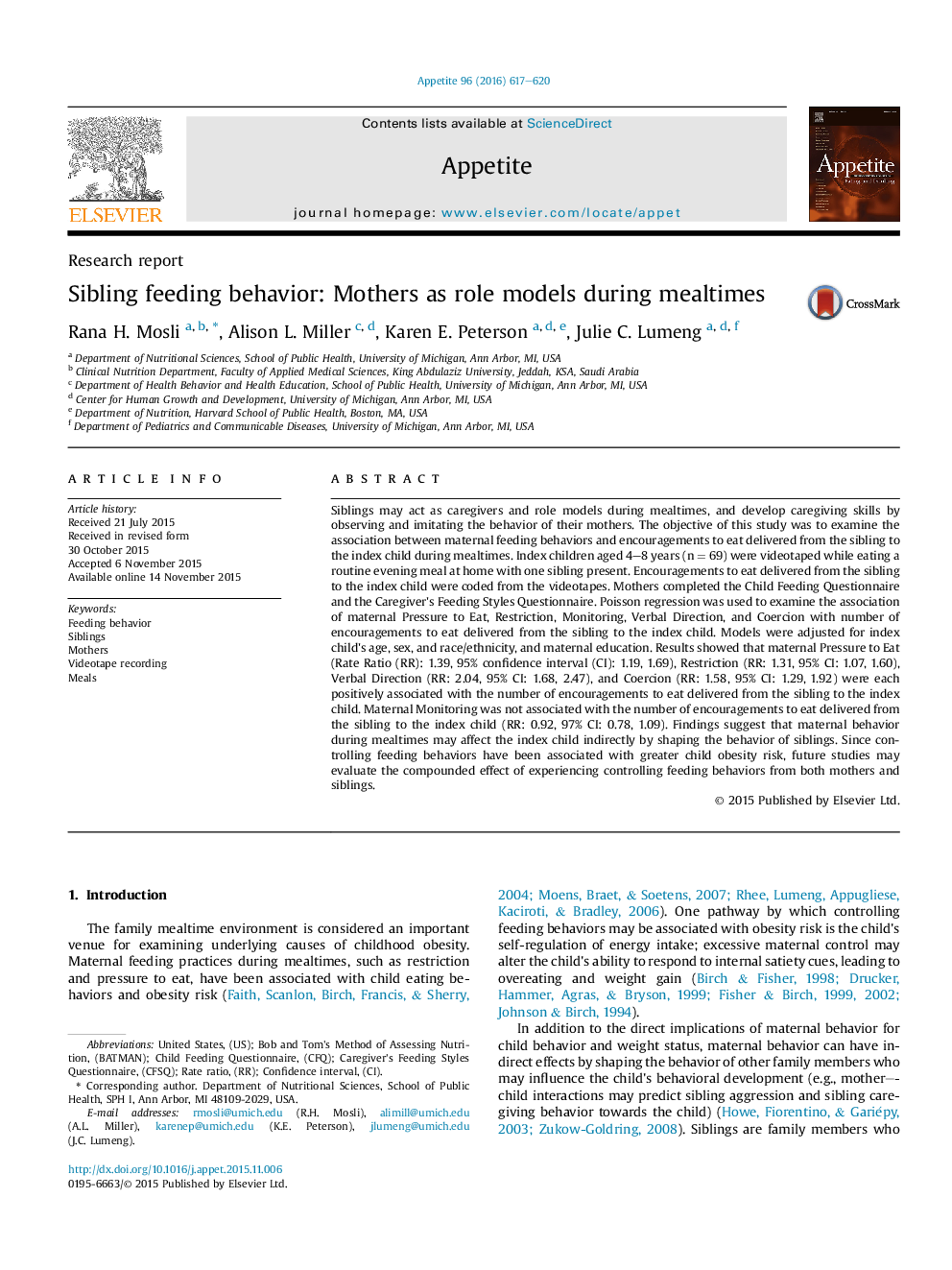| Article ID | Journal | Published Year | Pages | File Type |
|---|---|---|---|---|
| 7308601 | Appetite | 2016 | 4 Pages |
Abstract
Siblings may act as caregivers and role models during mealtimes, and develop caregiving skills by observing and imitating the behavior of their mothers. The objective of this study was to examine the association between maternal feeding behaviors and encouragements to eat delivered from the sibling to the index child during mealtimes. Index children aged 4-8 years (n = 69) were videotaped while eating a routine evening meal at home with one sibling present. Encouragements to eat delivered from the sibling to the index child were coded from the videotapes. Mothers completed the Child Feeding Questionnaire and the Caregiver's Feeding Styles Questionnaire. Poisson regression was used to examine the association of maternal Pressure to Eat, Restriction, Monitoring, Verbal Direction, and Coercion with number of encouragements to eat delivered from the sibling to the index child. Models were adjusted for index child's age, sex, and race/ethnicity, and maternal education. Results showed that maternal Pressure to Eat (Rate Ratio (RR): 1.39, 95% confidence interval (CI): 1.19, 1.69), Restriction (RR: 1.31, 95% CI: 1.07, 1.60), Verbal Direction (RR: 2.04, 95% CI: 1.68, 2.47), and Coercion (RR: 1.58, 95% CI: 1.29, 1.92) were each positively associated with the number of encouragements to eat delivered from the sibling to the index child. Maternal Monitoring was not associated with the number of encouragements to eat delivered from the sibling to the index child (RR: 0.92, 97% CI: 0.78, 1.09). Findings suggest that maternal behavior during mealtimes may affect the index child indirectly by shaping the behavior of siblings. Since controlling feeding behaviors have been associated with greater child obesity risk, future studies may evaluate the compounded effect of experiencing controlling feeding behaviors from both mothers and siblings.
Keywords
Related Topics
Life Sciences
Agricultural and Biological Sciences
Food Science
Authors
Rana H. Mosli, Alison L. Miller, Karen E. Peterson, Julie C. Lumeng,
